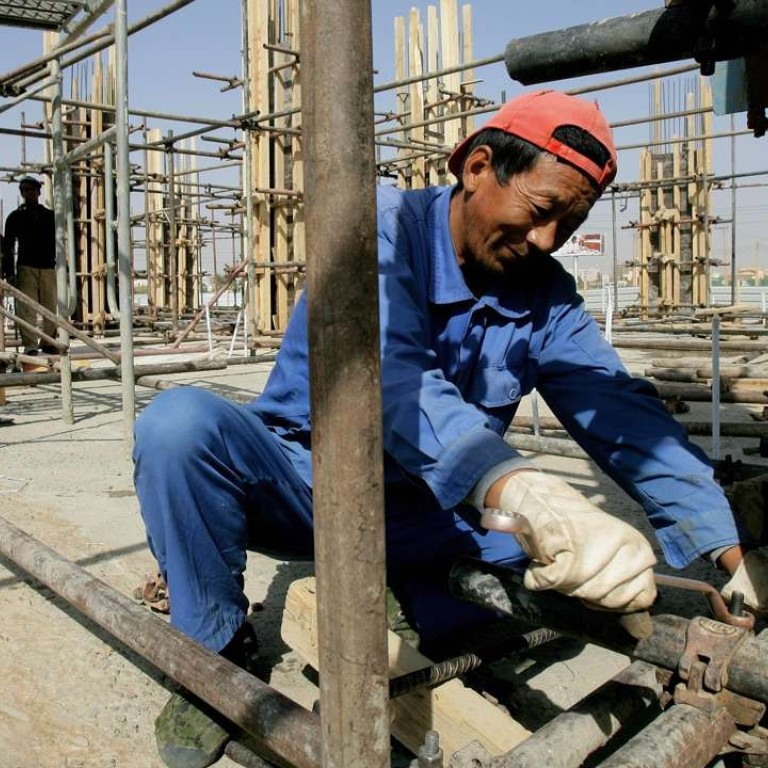
What the Chinese approach to overseas infrastructure can teach the world
Eric Prince says when the Chinese come in to build, local populations and economies benefit, and the US under Trump would do well to pay close attention to how China does business
When you build a road, you are building opportunities. That is the smart thinking behind the Chinese government’s ambitious “One Belt, One Road” strategy, which seeks to boost connectivity and cooperation between the nations linking the East and West. Infrastructure spending was a big election theme in the US, so, as President-elect Donald Trump gets ready to assume office, I would urge his administration play close attention to China.
The belt and road is an economic and industrial plan connecting China to markets across Africa and Asia, opening up trade routes and investing heavily in the host countries. The impact on both China and the developing economies of Africa and Asia will be transformative. We will be able to see Chinese-made products move even more freely across Asia and, in time, products manufactured in China being brought into the West at a fraction of the current cost.
The Chinese are all about action, action that means huge benefits for the communities in which they operate, the Chinese economy and also the global economy. Currently, hundreds of millions of Africans have access to the equivalent electrical power of just four hours of a 100 watt light bulb each day. Building critical infrastructure, whatever the motive, is surely the best way to improve lives, be it in Angola or Zanzibar, while also providing huge benefits to the companies and counties making the investment.
Watch: Chinese built railway links Ethiopia to Red Sea
While there will be economic gains for the Chinese, the local communities in which they operate also stand to benefit materially. The Chinese build airports, secure housing and schools, and look to invest in the area as a whole. When they move into a village in the Democratic Republic of the Congo to build a mine, they will ensure there is a comprehensive road network linking it to other strategic locations. This lets the locals trade regionally and frees them from the isolation of muddy jungle tracks.

How a gold mining deal in Africa inflamed hostility toward Chinese
When the Chinese move into Angola to build an oil refinery, they provide training for local workers and miles of oil pipes, and plough funds into social responsibility projects. When they go into South Africa to open up new investment channels, they build a mini-city on the edge of Johannesburg to be a regional investment hub, providing jobs to thousands and effecting a complete regeneration of the area. October saw the launch of a fully electrified cross-border railway line linking Ethiopian capital Addis Ababa to the Red Sea port of Djibouti, 750km away. The US$3.4 billion project, which cuts journey time from three days by road to about 12 hours, got funds from a Chinese bank and will have Chinese staff.

China’s foreign minister urges Trump to respect Beijing’s ‘core interests’, ‘major concerns’
These kinds of projects are updating 100-year-old infrastructure, built in colonial times. The investment pays dividends, as the people of Djibouti are now able to export minerals and precious stones to new markets and at more affordable prices. In the United States, the completion of the transcontinental railroad in the late 19th century had a similar transformative effect.
When the Chinese invest in Africa or Asia, they rightly don’t show up with a long list of unrealistic and patronising demands
The Chinese approach is not perfect. They tend to be insular and only engage with locals when necessary. However, the approach is unfairly maligned.
When the Chinese invest in Africa or Asia, they rightly don’t show up with a long list of unrealistic and patronising demands. They understand that the best way to effect positive change, and meet their economic goals, is to focus on the business objectives. They also do not use actual or threatened military force to enter host countries; they enter in a peaceful and largely transparent manner. The formula is simple: trade, mutual agreement and investment.
To succeed in the developing world, you need investment, realistic economic returns and buy-in from national governments. Continued investment in roads, railway lines and airports provides the tools needed to improve the lives of ordinary people.
US could join China-backed AIIB in wake of Trump win, bank chief says
Infrastructure investment changed America in the early 1900s; it was also the catalyst for growth in post-war Europe and now it will have the same effect in Africa and Asia. The Chinese are leading the way and the West has much to learn from how the ancient Middle Kingdom does business in the modern world.
Erik Prince is an American businessman, philanthropist, and former US Navy Seal. He is executive chairman of Hong Kong-listed Frontier Services Group
